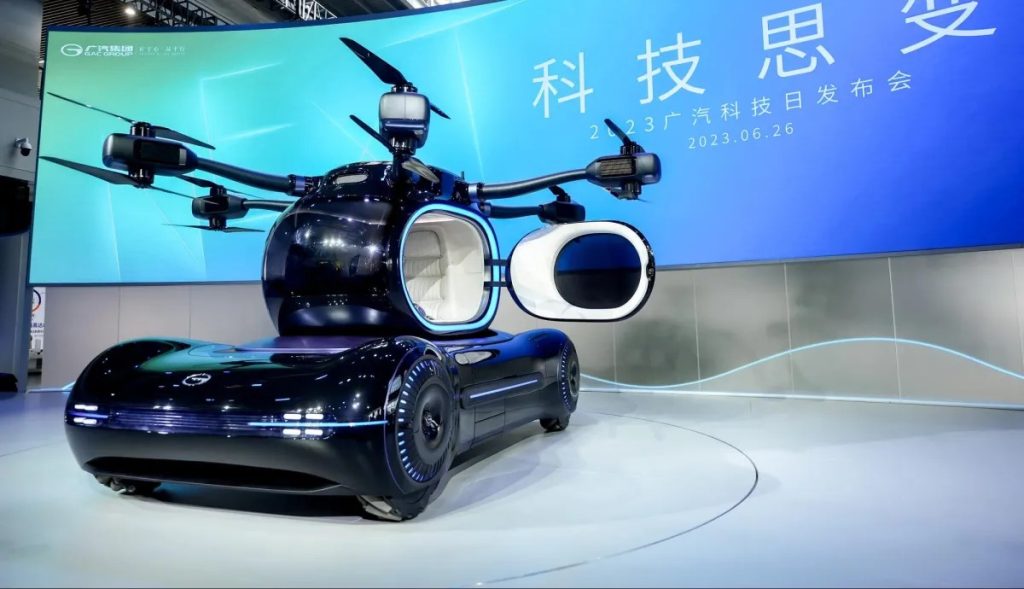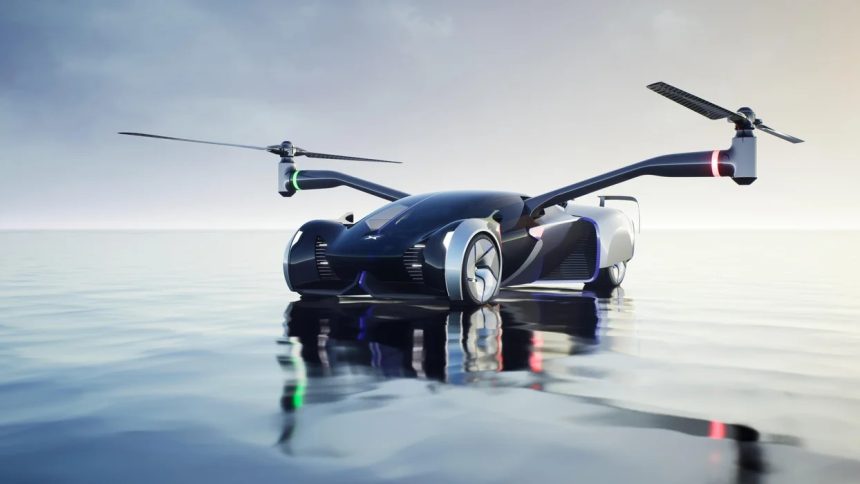Tech firms appear to be obsessed with the sky on both sides of the Pacific Ocean. Chinese electric vehicle startup XPeng, a well-known domestic rival to Tesla. It is aiming for a lower altitude while Elon Musk is sending rockets into space. It unveiled a brand-new item on October 24: a flying car that it claims will go into mass production in 2024.
The new device by XPeng looks like a hybrid of a drone, a helicopter, and an electric automobile thanks to its two large propellers and futuristic design. Flying cars, or more properly Vertical Take-off and Landing (VTOL) planes, are all the rage in China right now. Above all, people want to know if the claim that they will be implemented in 2024 is accurate or overly optimistic.
China’s VTOL business has seen steady growth in 2021, particularly for new “eVTOL” versions propelled by electricity. While those with a few more years have earned up to $500 million. Startups founded this year are raising millions of dollars in seed capital. However, there are still a lot of barriers to overcome before an eVTOL product can take to the skies.

Particularly, eVTOLs must pass a separate set of safety testing than cars because they are subject to the same regulations as aviation. No one is certain how long the regulatory approval procedure in China might take. Given that the only VTOL-specific norms in the world were just recently submitted in Europe.
Observers claim that businesses like XPeng may benefit from increased media and investor interest. They are ultimately overly hopeful about the aircraft industry and its regulators. Who move more cautiously but more slowly than their automotive counterparts.

The upstart in the XPeng industry
Similar to how EVs have posed a significant threat to conventional cars, eVTOLS are revolutionizing the civil aviation sector. Louis Liu is the founder of the aviation and maritime tech consultancy company DAP Technologies. He told Protocol that the amount of parts in an eVTOL is roughly one-thirty times lower than the number of parts in a conventional civil aircraft. “EVTOL is the future because of this. It uses electricity rather than gas, has reduced maintenance expenses, and is less prone to break.
Startups with limited backgrounds in civil aviation have been drawn in by the low technology barriers and strong business possibilities. Consumer drone products were where EHang, the top eVTOL firm in China, started before being listed on Nasdaq. Before starting the business HT Aero, which was bought by XPeng and created the product released last week, Zhao Deli was an amateur model airplane enthusiast.



